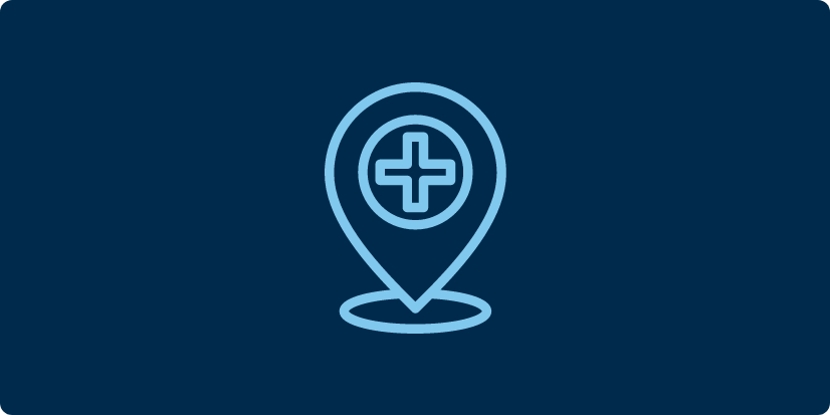
Sleep Testing
Get Tested for Sleep Disorders
At Southeast Iowa Regional Medical Center, we offer a variety of sleep tests to diagnose sleep disorders. Below you will find a brief overview of the tests we perform and what you can expect as a participant. If you have a sleep disorder, overnight sleep testing is the most effective diagnostic tool we have. We will do all in our power to ensure your stay is comfortable so that we can more quickly diagnose your condition and start treatment.
Out Of Center Sleep Testing (OCST)
Patients who have specific criteria and are suspected of having obstructive sleep apnea may qualify for an out-of-center sleep study. Patients who qualify for this test will be allowed to wear small monitoring devices while sleeping in the comfort of their homes. Education and equipment are provided on the day of the test. Patients then apply monitors with sensors at bedtime while getting their typical night's sleep in their homes. The next morning, the patient must return the monitoring device so the data can be downloaded and prepared for physician interpretation.
Polysomnogram (PSG)
A Polysomnogram or “Sleep Study” is a multi-parametric test used to study sleep and as a diagnostic tool in sleep medicine. A sleep study is a noninvasive approach to monitor several aspects of a patient’s typical night’s sleep. A PSG is often considered the gold standard for the diagnosis of Obstructive Sleep Apnea (OSA) and evaluating various other sleep disorders. There are three commonly ordered PSG’s and one pediatric PSG:
-
Standard Polysomnogram – This is a routine diagnostic sleep study. A Split Night Polysomnogram will be performed as long as you meet the criteria for treatment during your Standard PSG. The criteria will be explained before your testing.
-
Split Night Polysomnogram – Patients coming for an overnight polysomnogram may be diagnosed and qualify for treatment on the same night. The Sleep Disorders Center staff will explain the guidelines for qualifying for treatment before you go to sleep.
-
CPAP Titration – Patients who have a previous diagnosis of OSA may be treated with Continuous Positive Airway Pressure (CPAP) depending on the severity of their apnea. CPAP is the standard treatment for moderate to severe OSA.
-
Pediatric Polysomnogram – A pediatric polysomnogram is an overnight sleep study for patients between the ages of 6 and 12 years old. All routine polysomnogram parameters will be monitored while in a child-friendly environment. Parents or legal guardians are required to stay for the duration of the test. Pediatric patients will be required to have a diagnostic polysomnogram performed before treatment can be initiated.
Multiple Sleep Latency Test (MSLT)
A Multiple Sleep Latency Test is a daytime test that typically follows an overnight sleep study. This test monitors sleep architecture and how quickly patients fall asleep. Since people with narcolepsy frequently have REM (dreaming) sleep even during a brief nap, this test can be a valuable tool to aid in the diagnosis. The test consists of taking four to five 20-minute naps that are spaced out in two-hour intervals. Patients are allowed to wear daytime clothing and will be provided meals throughout the day of testing. Patients are encouraged to bring activities to keep them busy between the scheduled naps.
Maintenance of Wakefulness Test (MWT)
A Maintenance of Wakefulness Test is a daytime test that measures your ability to stay awake. The test may be used to assess daytime alertness while on the job or your response to treatment of various sleep disorders, such as sleep apnea or narcolepsy. The test typically begins one and a half to two hours after your normal wake-up time and consists of four to five 40-minute periods in which you will be asked to sit in a dimly lit room and remain awake and alert. If the patient falls asleep during the 40-minute trial, testing will be stopped until the next scheduled trial. These 40-minute testing periods will be in 2-hour intervals, so plan on spending at least 8 hours at the Sleep Disorder Clinic.
PAP Nap
A Positive Airway Pressure Nap (PAP Nap) is an outpatient test that is used to desensitize patients to positive airway pressure such as CPAP or BiPAP. This nap study is intended for patients who suffer from insomnia and sleep-disordered breathing (SDB) and are still experiencing discomfort or resistance to their treatment.
Preparing For a PAP Nap:
-
Please wake up 3 hours earlier than your normal wake time.
-
No napping before your PAP Nap
-
Do not consume caffeine the day of or the night before your test.
-
Arrange for a ride to and from your test to decrease the risk of drowsy driving.
-
Eat your breakfast and lunch before arriving at your appointment.
-
Wear comfortable clothing and bring your CPAP/BiPAP mask with you.
During the test, will monitor your: breathing effort, heart rate, pulse oximetry, body position, and video monitoring. The staff will work with you to make sure your mask fits properly before you lay down to rest. Comfort measures and desensitization techniques will be utilized by the staff to make your transition to positive airway pressure more comfortable. You will be allowed to rest for one to two hours or until you feel more comfortable using your PAP mask.

